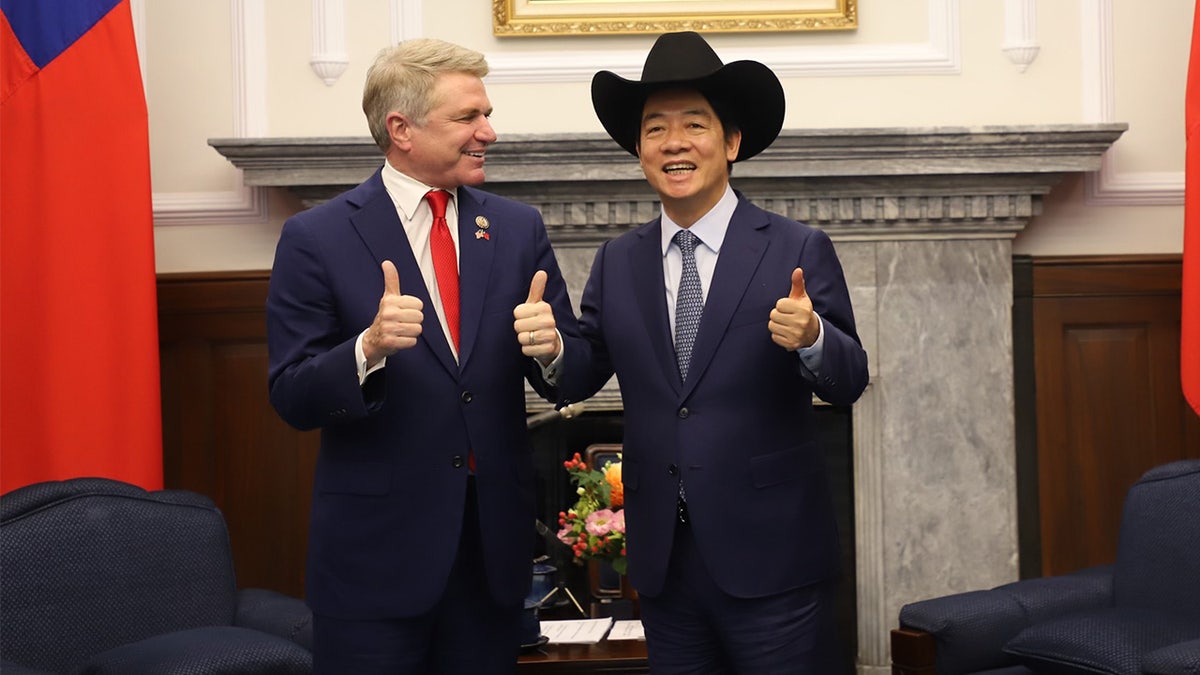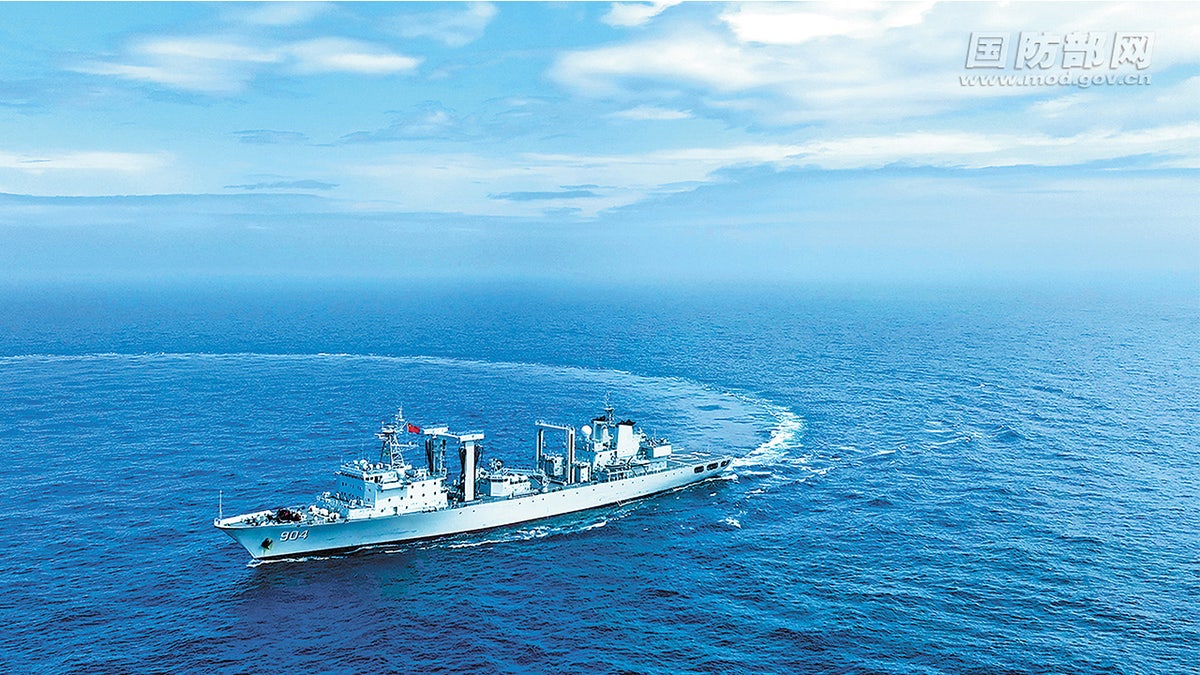TAIPEI, Taiwan — Ukraine’s existential war for its sovereignty from Russia is giving inspiration to Taiwan, an island thousands of miles away, as it hopes to deter its own authoritarian invasion by China.
While their cultures and geography are vastly different, nowhere does Ukraine’s struggle resonate more deeply than on Taiwan’s shores. The Taiwanese people see themselves in the Eastern European nation’s struggle — a comparison made even more stark by the growing alliance between Chinese President Xi Jinping and Russian President Vladimir Putin.
“The situation in Ukraine has been a wake-up call for a lot of people, the Taiwanese included,” Rep. Chrissy Houlahan, D-Pa., told Fox News Digital in Taipei. “I think that we live in this sort of post-World War II, post-Cold War mindset, that somehow that was in the past… There’s sort of this axis of Iran and China and… Russia that is reminiscent of history that we’ve seen before… what I’ve been hearing more from the Taiwanese people who we’ve met with, is a realization or recognition that there’s definitely been a bit of a pivot, and they also have to pivot.”
It has inspired a shift in both military and social policies in Taiwan, which is faced with an increasingly aggressive China, and even a road map on how to navigate U.S. support. In particular, American political infighting on Ukraine aid has raised existential questions in Taiwan about the durability of U.S. support in a time of long-term conflict.
35 YEARS AFTER CHINA’S TIANANMEN SQUARE MASSACRE: WHY WE MUST NEVER FORGET
“The lesson for Taiwan is that we do know that [an] asymmetric defense, that works well for the defense of Taiwan…as well as the the importance of building up a resilience among society to increase the stamina for the war,” said Dr. I-Chung Lai, president of the Taiwanese think tank The Prospect Foundation. “The war could be long term rather than just in a short period of time, so the whole society needs to come out to anticipate that”
“Another thing about it is that the international support. We need to gear up right now rather than sometime later, because first of all, we find that Western support and coherence — it’s very easy for the authoritarian state to really try to divide and conquer, so it is important to build up the support early on.”
Lai added that there needs to be an emphasis not just on defending Taiwan, but bringing “the cost of war” to China by developing an offensive strategy as well.
COMMUNITIES ABROAD COMMEMORATE TIANANMEN SQUARE VICTIMS AFTER HONG KONG CRACKDOWN QUASHES CEREMONIES
Until recently, Taiwan’s military has largely focused on training for an amphibious Chinese invasion, but factors, including the Ukraine war, have prompted talk about shifting to preparations for multiple military situations, known as an asymmetric response.
The importance of preparing their society for war is also a key lesson for Taiwan, not just for their internal unity, but also to prove to allies abroad that their support is meaningful.
Ukraine’s troops took the world by surprise in February 2022 when they defied the odds to hold off Russia’s invasion despite projections that Kyiv could fall within a matter of days.

U.S. lawmakers, who were in Taipei last week to meet with the newly inaugurated government, stressed that the societal component was critical to giving Taiwan a fighting chance in the event of an attack.
Rep. Jimmy Panetta, D-Calif., noted that Taiwan’s government has taken steps to show its allies and its people that it is taking matters of defense seriously, including increasing mandatory military service time by more than double.
“There’s a lot more work to do, and I think people here will tell you that, and I think people in America will tell you that. But the fact is, basically seeing the steps that the Taiwanese have taken from…increasing their defense budget, making it over 2%, and then… changing their conscription time from four months to a year… They understand that, basically, looking at Ukraine, that it takes more than just armaments. It takes the will to use those armaments,” he said.
House Taiwan Caucus Co-Chair Rep. Andy Barr, R-Ky., said when asked if Taiwan’s residents were ready to defend their island, “They’re getting there.”
BIDEN ADMIN SLAMMED AS GRANTING ‘MAJOR COUP’ TO CHINA AFTER TOP OFFICIALS VISIT ON TIANANMEN MASSACRE DATE
“I think what’s helped strengthen the will of the people of Taiwan is that they’ve seen what Beijing has done in Hong Kong. They’re seeing what they’re doing in the [Taiwan Strait] with these military exercises,” Barr said.
The English-language outlet Taiwan News reported in April that 77% of young Taiwanese people were willing to fight for their country.
“Our goal is not to think about the invasion or potential conflict, our goal is to ensure there is that deterrence by providing Taiwan what they need to protect themselves and defend themselves should there be a conflict,” said Rep. Young Kim, R-Calif., who chairs the House Foreign Affairs Committee’s Indo-Pacific subcommittee.

What has inspired some anxiety in Taiwan, however, is political infighting in the U.S. Congress that did see Ukraine get $61 billion in aid, though Kyiv’s supporters said it came six months too late and at a great cost to its forces.
Both Republicans and Democrats on the trip who spoke with Fox News Digital would not directly admit it was an issue, but Taiwanese policy experts thought differently.
“There are latent concerns about that,” Lai said.
He explained that while the U.S. views Taiwan in a “different” way than Ukraine – citing a “standing critical interest” in Taiwan’s semiconductor industry – the island was watching the effects such delays had on Ukrainian weapons stocks closely.
“Whether it’s a good thing or bad thing for Ukraine, is that Ukraine can have multiple sources of weapons and deliveries – not just the United States, but also from the European countries. But we can only have one from the U.S.,” Lai said.
Dr. Ming-Shih Shen of the Institute for National Security and Defense Research, another Taiwanese think tank, said, “We can imagine a scenario like Ukraine” but added that it would depend on how long Taiwan could defend itself on its own.
Read the full article here



